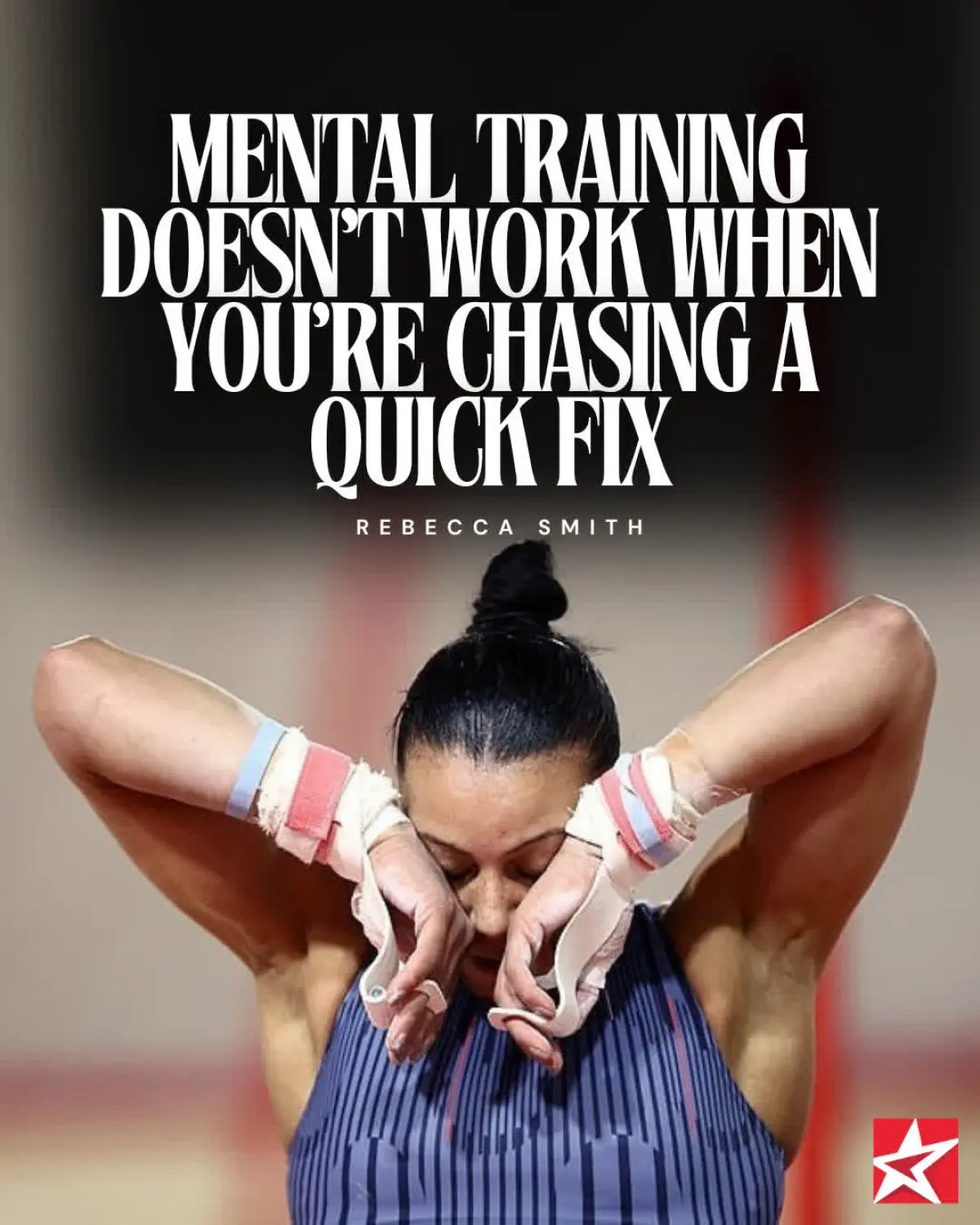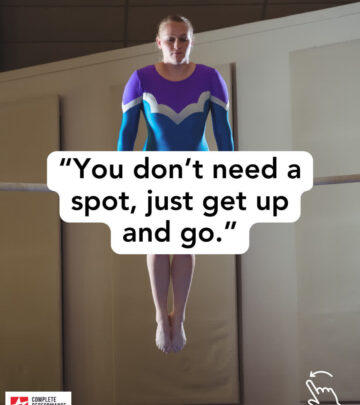Mental Training Realities Exposed
Discover why real growth is built on patience, trust, and embracing every setback. - Now!

Image: Instagram
On this week’s episode of the PerformHappy Podcast, Rebecca Smith – a gymnastics mental block coach at Complete Performance Coaching – delivers a no‐nonsense truth: mental training doesn’t work when families are chasing a quick fix. In a candid discussion, Smith recounts the story of an athlete who apparently ‘failed’ after only two sessions because the support system was expecting an instant result. Instead of building long-term confidence through trial, error, and gradual progress, the parent in the story pulled the plug too early, prioritizing a shortcut over the process of genuine growth.
Mental Training Is Not A Quick Fix
Mental training is often misunderstood as a magic trick or a temporary boost. However, according to Rebecca Smith, it is about cultivating a growth mindset that learns to embrace setbacks rather than avoiding them. In her conversation on the podcast, she emphasizes that when families expect immediate changes, they inadvertently foster a fixed mindset. This fixed mindset, characterized by a desire for perfection and an aversion to struggle, prevents many athletes from reaching their potential. Instead of viewing challenges as opportunities to build resilience, athletes end up stuck in routines that offer little progress over time.
Smith explains, “Mental training isn’t about toughness or quick results; it’s about trust, process, and grit.” By sharing the powerful narrative of the athlete who was let down by unrealistic expectations, she urges listeners to rethink their approach to mental and emotional development. Rather than seeking a miraculous transformation, both the athlete and the support network need to invest in the gradual, sometimes frustrating journey of growth. This perspective is a recurring theme on the PerformHappy Podcast, where the focus remains on turning mental blocks into stepping stones for lasting confidence.
Growth Demands Patience And Process
The episode dives deep into the essence of what truly builds a strong mindset. Mental training is a process that entails building trust in oneself, learning to handle setbacks, and understanding that real change is a slow and steady evolution. For many families, the desire for quick fixes can lead to impatience and setbacks. As Smith points out, when those closest to the athlete are stuck in a fixed mindset—always seeking perfection and quick success—they risk causing more harm than good. This not only stalls progress but may even intensify the very blocks they hope to overcome.
Listeners of the podcast are encouraged to comment with a simple ‘WHY’ to receive a direct link to the episode, indicating a growing online community eager to explore the nuances of mental performance coaching. The episode has struck a chord, with many followers resonating with the idea that building a growth mindset means valuing each setback as a critical part of the journey.
Drawing on similar themes from past segments, Rebecca Smith’s insights echo advice shared in previous Instagram posts from the PerformHappy Podcast. For instance, one post highlighted that an athlete’s brain is wired for survival rather than performance—a perspective that demystifies the natural fear athletes feel before high-pressure moments. Whether it is on the beam, the tumbling pass, or even in competitive settings, the message remains consistent: true progress is borne out of a healthy, supportive environment where setbacks are understood as part of the process, not failures.
Embracing Setbacks To Build Confidence
Rebecca Smith’s discussion also focuses on how athletes should be supported when they face mental blocks. Rather than immediately pushing an athlete to perform, the coach and family need to lay down the framework of rebuilding trust. This starts with recognizing the presence of fear and self-doubt and then methodically working through it with patience and empathy. In a climate that often glorifies rapid success, the idea of taking one step back in order to jump forward can feel counterintuitive. However, many coaches and parents have found that when athletes are given time to recalibrate, the resulting boost in confidence is both sustainable and transformational.
A key takeaway from the session is that mental training involves not only the athlete but also the support network. When the people closest to the athlete expect quick results or resort to pointing fingers, it disrupts the essential mental work necessary for overcoming blocks. Instead, Smith advises all stakeholders—be it parents, coaches, or trainers—to shift their focus from immediate outcomes to fostering an environment where gradual improvement is celebrated.
Smith’s message resonates beyond the world of gymnastics. It applies to any performance context where high stakes and pressure are part of the everyday narrative. Her assertion that “mental training is a process” reinforces the importance of patience and the adoption of strategies that nurture long-term growth. For those facing persistent mental blocks, she even offers tools like a free Mental Block Guide via direct message. Such resources aim to empower athletes and their families to view setbacks as opportunities rather than as insurmountable obstacles.
In wrapping up the episode, Rebecca Smith leaves her audience with an empowering reminder: mental training is not about a one-time fix or instant transformation. It is a layered, dynamic process that requires trust, time, and a willingness to embrace every setback as an integral part of the journey towards excellence.
The PerformHappy Podcast thus stands as a resource for athletes, their caregivers, and coaches alike, inviting all to rethink what it truly means to grow and succeed. By debunking the myth of the quick fix, it sets forth a more realistic, compassionate, and ultimately effective approach to mental training.
Ultimately, Rebecca Smith’s clear, empathetic message challenges a culture of instant gratification and reaffirms that real strength comes from embracing the struggles along the way.
Read full bio of Nisha Bharatan



















